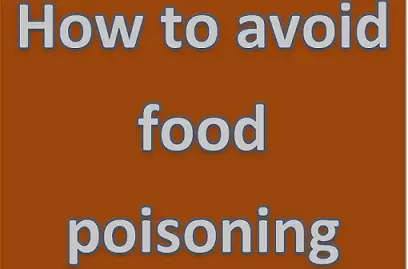How to Prevent Food Poisoning at Home
In Kenya there are many unreported cases of food poisoning happening every day. In the UK however there are over five hundred thousand reported cases of food poisoning every year, as recorded by the Food Standards Agency (FSA).
Food poisoning is an unpleasant experience that you will not like going through.
In some instances food poisoning causes serious illness or even death on very extreme circumstances.
The assumption in most people is that food poisoning doesn’t happen in the house, that you can only experience it in food joints and outlets. This is far from the truth because you run the risk of food poisoning virtually anywhere, even food made at home.
Here are tips to help minimize the risk of food poisoning at home.
Clean your hands
Washing hands is the first line of defense when it comes to food poisoning. Hands should be thoroughly cleaned with warm water and soap and they should be dried before handling any food. This should be repeated in all other circumstances where contamination is envisioned. Like after visiting the toilet, handling raw food, touching pets or blowing your nose.
Wipe Clean Worktops
Always make a habit of cleaning the kitchen working area before and after making food, more so if you have been handling raw meat, poultry, fish and or vegetables. Warm soapy water should do just fine.
Wash Towels and Dishcloths
Germs thrive well in damp and dirty places. Towels and dish cloths should be left to dry thorough after washing.
Use different chopping boards
Separate boards for different types of food i.e. raw and ready to eat. Harmful bacteria hide in raw food and can easily spread to other foods, boards, knifes and surfaces.
Keep Raw Meat Separate
It’s important to separate raw meat from ready-to-eat foods, such as fruits, bread or salad. If these foods are contaminated it is not possible to sterilize them as you won’t be cooking them. This is because these foods won’t be cooked before you eat them, so any bacteria that gets on to the foods won’t be killed.
Store raw meat on the bottom shelf- use the bottom shelf of your fridge to keep meat to avoid dripping on other foods.
Cook Food Thoroughly
Make sure to cook food thoroughly and ensure that it’s steaming hot all the way through. Ensure pork, poultry, sausages kebabs and burgers are cooked thoroughly without pink meat or red blood inside. It’s recommended not to wash raw meat or chicken before cooking. This is to curb the spread of bacteria that may be present on them. Cooking helps to kill any bacteria on raw foods.
Maintain your fridge temperature below 5C
Cold temperatures stop poisonous bugs from spreading. Keep your fridge temperature below 5C. By keeping food cold, you stop food poisoning bugs growing.
Cool leftovers quickly
Don’t keep leftovers too long in the fridge. It’s best to consume leftovers within 2 days from the day of cooking. If you have any leftovers cool them quickly and keep them in fridge within two hours.
Respect Expiry Dates
Do not consume food that is past its expiry date. These dates are usually best on tests carried out on how fast germs develop in the packed food.

